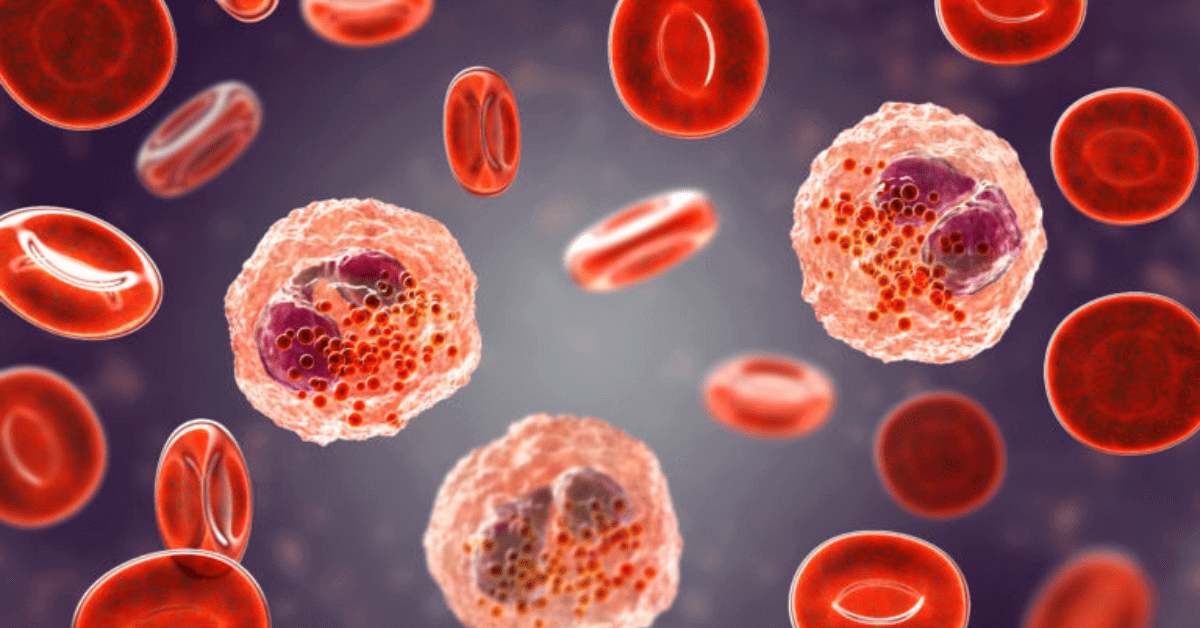What is the Most Common Cause of Eosinophilia?

Eosinophils are typical white blood cells that provide aid in destroying allergens and foreign substances and help the immune system. At times, these white blood cells significantly multiply, and the condition is known as Eosinophilia. The most common eosinophilia symptoms are promoted due to certain medical conditions and medicines, which cause eosinophil levels to rise.
Eosinophilia is a condition which typically indicates cancer, allergic reaction, parasitic infection, etc. These disease-fighting white blood cells are uniquely formed in the bone marrow and are transferred to various tissues.
As you are here today, this blog will give you valuable information regarding the most common causes of Eosinophilia. While digging further, you will also learn about the most common eosinophilia symptoms. Please keep reading until the end to learn more about it. Let’s begin.
Eosinophilia – What is it?
Eosinophilia is a typical medication where the count of eosinophils automatically shoots up. Eosinophils, the white blood cells, help fight against allergens and protect the body from parasitic or fungal infections.
The basic functions of eosinophils within the immune system are:
- Helps in destroying any foreign substances
- Provides aid in regulating inflammation
Eosinophilia – What are the Causes?
The count of eosinophils within the blood can deliberately increase because of various health conditions. Some of the most common causes include:
- Skin disorders
- Allergic reactions
- Toxins
- Endocrine disorders
- Tumours
- Fungal and parasitic diseases
- Autoimmune disorders
- Adrenal conditions
However, parasitic infections and allergic reactions most commonly pave the way for Eosinophilia. Apart from these, certain other medical conditions can also promote Eosinophilia in blood tissues. They are:
- Drug allergy
- Atopic dermatitis or Eczema
- Hypereosinophilic syndrome
- Hay fever
- Asthma
- Crohn’s disease
- Hodgkin’s lymphoma
- Acute myelogenous leukaemia
- Churg-Strauss syndrome
Eosinophilia – What are the Symptoms?
The primary reason for an increased count in the eosinophil will help in determining the associated eosinophilia symptoms. Remember that you might not experience any symptoms if your eosinophil count is mildly high. However, for a significantly higher count, you might experience the following symptoms:
- Asthma
- Itching
- Diarrhoea promoted due to parasitic infections
- Rash
- Runny nose promoted due to allergic reactions
Eosinophilia – What are the Ways to Prevent it?
Eosinophilia is most commonly related to allergies and can be prevented with allergy control treatments. However, there are certain occasions when Eosinophilia is probably a sign of an underlying medical condition. And the worst part about it is that it’s not preventable.
Here, we have listed some of the commendable precautionary measures that will help you reduce the occurrence of Eosinophilia:
- You must avoid consuming undercooked meat, freshwater prawns, fish, slugs, snails, etc.
- You should maintain proper physical hygiene.
- You need to keep away certain medications which can promote allergic reactions.
- You need to ensure that you wash and clean fruits and vegetables thoroughly before consuming them raw. This will help you to prevent parasitic infections from occurring within your body.
- Last but not least, you must consider living in a clean and dust-free environment.
On the other hand, as a general preventive measure, you are required to avoid allergens which can trigger Eosinophilia.
Once your healthcare provider detects the underlying cause of Eosinophilia, they will treat the responsible condition. But to make proper diagnoses, you might need to undergo several tests. Also, make sure you discuss your present condition with your doctor and the other complications you have been experiencing.
To Conclude
Whenever you are diagnosed with Eosinophilia, you will know that the eosinophils in your body are considerably higher. You can learn that you have this condition when you undergo routine blood tests. Nevertheless, an exceptionally higher count of eosinophils is never really a matter of concern.
Read more blogs: